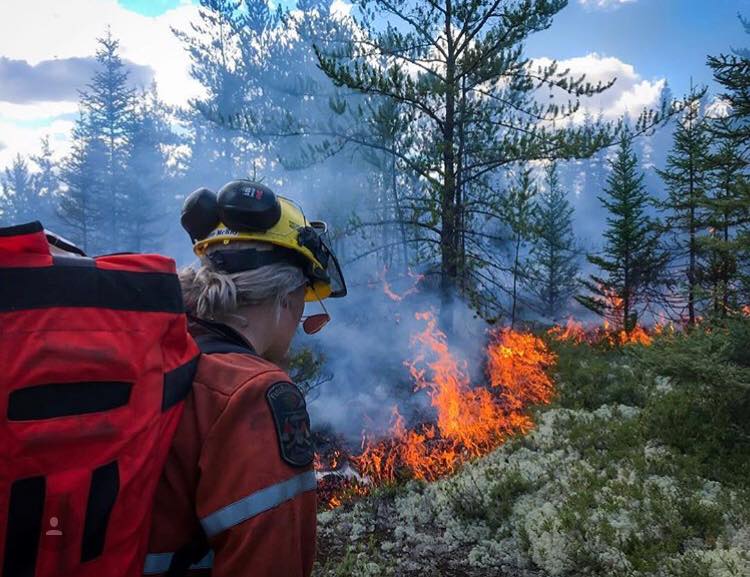The Ontario government is taking action to protect people and communities from the risk of preventable human-caused fires and to ensure that the province’s emergency response system remains strong during the COVID-19 outbreak.
Starting April 3, 2020, Ontario’s entire legislated fire region will be designated a Restricted Fire Zone. Residents who live in an area with a restricted fire zone including Parry Sound-Muskoka cannot have an outdoor fire—this includes burning of grass, debris and campfires, even when using an outdoor fire grate, fire place or fire pit.
“During this very challenging time when we are fighting the spread of the virus, our number one priority is the health and safety of the people of Ontario,” said John Yakabuski, Minister of Natural Resources and Forestry. “We are putting these important preventative measures in place now to ensure that our emergency responders are able to focus their efforts where they are needed most.”
This restriction will remain in place until Ontario’s ability to respond to emergencies is no longer impacted by the COVID-19 outbreak. Local municipalities are working to update their websites with information for residents. Meanwhile, Ontarians can learn about the rules under a Restricted Fire Zone at ontario.ca/page/outdoor-fire-restrictions.
Below is the letter from the MNRF
The Ministry of Natural Resources and Forestry (MNRF) has implemented a Restricted Fire Zone (RFZ) across the entire legislated fire region of Ontario due to impacts related to the COVID-19outbreak. This is a proactive action by the Ministry to reduce the number of preventable human-caused wildfires to ensure that emergency response capacity is maintained. Minimizing wildfires will ensure the province is able to address any emergency fire situations as well as will reduce necessary contact among staff, and between staff and the public.
This RFZ is effective April 3, 2020 and will be in effect until such time that the MNRF can determine that emergency response capacity will not be impacted by COVID-19. This RFZ will help reduce demands on the emergency response system while the hiring and training of seasonal fire staff is completed. This is the first time that MNRF has implemented a provincial RFZ at the onset of the fire season (April 1) where heightened wildland fire hazard has not existed.
It is important to note that an RFZ applies to all Crown and private land within a municipality, as well as provincial parks and conservation areas inside the regulated fire region.
Below is a summary of the restrictions that are in place during an RFZ.
• No open fires are allowed unless the fire is for cooking or warmth and is in a stove or installation prescribed in the Outdoor Fires Regulation (O.Reg. 207/96); or a fire permit is issued by a Fire Officer.
2
• Campfires are not allowed. There are some exceptions to this for organized campgrounds if they meet certain criteria in section 8.4 of O.Reg. 207/96.
• Portable stoves must use liquid or gas fuel and have a shutoff valve.
• A charcoal barbeque can be used if they are permanent structures or portable and within 100 metres of a dwelling you occupy.
• Outdoor wood burning stoves or furnaces must be completely enclosed with solid material and be within 100 metres of a dwelling you occupy.
• During an RFZ, fire permits may be issued by a Fire Officer to allow outdoor fires for a ceremonial event or because of special circumstances.
• If a person is willing to obtain a permit, one can be issued with appropriate conditions in place such as, a responsible person on site, proper tools to extinguish the fire, etc.
For more information on when a restriction is in place, please visit our website: https://www.ontario.ca/page/outdoor-fire-restrictions
The implementation of an RFZ may not dictate a shutdown of forestry or industrial operations. The requirement for work restrictions or modifications for industrial operations is determined by separate protocols and guidelines.
The Forest Fires Prevention Act (FFPA) allows municipalities to pass by-laws pertaining to open-air burning. If your municipality has open-air burning by-laws in place, the most restrictive provision (act, regulation, or by-law) prevails. This ensures compliance with all applicable provincial legislation or municipal by-law.
More information can be found in the FFPA and Outdoor Fires Regulation 207/96, or by contacting your local Fire Management Headquarters.
Chris Cuthbertson
Director
Aviation, Forest Fire and Emergency Services
- To see a map of Ontario’s fire region, visit ontario.ca/forestfires.
- Visit Ontario’s website to learn more about how the province continues to protect Ontarians from COVID-19.
